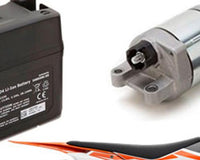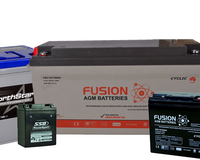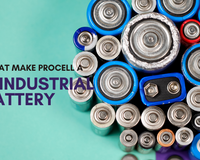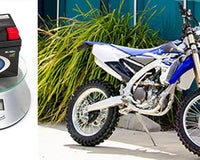What if the humble AA battery you pick today could double your camera’s winter runtime, trim your household battery spend, and keep your field sensors online for months longer?
Are “1.5 V” and “1.2 V” really interchangeable? Why do some AAs leak while others thrive at −40 °C? And which ones are safest for medical accessories or hazardous locations?
You’re in the right place. Let’s make AA batteries obvious.
Table of contents
Quick Specs & Standards (What “AA” Actually Means)
-
Size code: IEC R6 (AA).
-
Typical dimensions: ~14.5 mm diameter × 50.5 mm length.
-
Common chemistries & designations:
-
LR6 = Alkaline AA (1.5 V nominal)
-
FR6 = Lithium iron disulfide AA (1.5 V nominal)
-
HR6 = Nickel‑metal hydride AA (1.2 V nominal)
-
14500 = Li‑ion rechargeable in AA form factor (3.6/3.7 V nominal; not drop‑in compatible with 1.5 V devices unless they specify it)
-
-
Weight (ballpark): ~23 g alkaline, ~15 g lithium primary, ~30–31 g NiMH.
Voltage vs devices: Most devices that accept AA cells are designed for 1.5 V primary cells or 1.2 V NiMH rechargeables. Avoid 14500 (3.6/3.7 V) unless your device specifically supports it.
AA Battery Types Compared

*Capacities are test‑method dependent and vary with load, cut‑off voltage, and temperature.
Consumer Applications & Best Choices
Low‑drain (clocks, remotes, wireless keyboards)
-
Best value: Alkaline AA (LR6).
-
Why: Low current means alkalines deliver rated capacity economically; long shelf life.
Key takeaway: For anything that sips power, alkaline wins on simplicity and price.
Medium‑drain (toys, LED flashlights, handheld game controllers)
-
Best overall: NiMH low‑self‑discharge rechargeables (HR6).
-
Why: Lower lifetime cost and less waste if you recharge weekly/monthly. Choose 1900–2000 mAh LSD cells for longevity; use a smart charger with delta‑V cut‑off and temperature monitoring.
Key takeaway: If you recharge monthly or more, NiMH beats primary cells on total cost of ownership.
High‑drain burst (camera flashes, digital cameras, high‑output LEDs)
-
Best runtime & reliability: Lithium AA (FR6) or quality NiMH.
-
Why: FR6 keeps voltage flatter under load and in cold weather; NiMH handles very high currents and recharges quickly.
Key takeaway: Choose FR6 for cold/mission‑critical bursts; NiMH for rapid‑fire use with charging.
Cold‑weather use (outdoor sensors, action cameras, trail cams)
-
Best: Lithium AA (FR6).
-
Why: Operates down to around −40 °C with strong capacity retention and low internal resistance.
Key takeaway: Cold ruins alkalines - use FR6 below freezing.
Emergency kits
-
Mix: Keep lithium AA for longest shelf life and performance + NiMH with a USB charger/power bank for sustainable reuse.
Key takeaway: Pair FR6 for “grab‑and‑go” reliability with NiMH for sustainable daily use.
Industrial & Commercial Applications
From smart sensors to medical accessories and utility endpoints, here’s how to spec AA cells for uptime, safety, and total cost.
-
Smart buildings / IoT sensors / asset trackers: Favor FR6 for long life, low self‑discharge, and wide temperature range.
-
Utility & metering accessories (data loggers, AMR endpoints that use 1.5 V): FR6 for long maintenance intervals; check device specs (many meters use 3.6 V Li‑SOCl₂ cells in AA‑like size - not the same as AA).
-
Medical (non‑life‑support accessories like BP cuffs, thermometers): Use FR6 for reliability or LSD NiMH where rechargeability is permitted.
-
Intrinsic safety / hazardous locations: Select FR6 with appropriate certifications (e.g., ATEX/IECEx markings) and device approvals.
-
Field service tools & inspection lights: LSD NiMH when frequent charging is practical; FR6 when logistics favor primary cells.
Key takeaway: For industrial uptime across temperatures and duty cycles, FR6 is the default - use LSD NiMH when charging ops are in place.
Real‑World Performance: Tests & Case Studies
1) High‑drain digital camera burst test (manufacturer application profiles)
Scenario: Digital camera with repetitive bursts (zoom, autofocus, flash).
Finding: Lithium AA (FR6) maintains higher voltage and longer service time than alkaline AA under the same duty cycles, particularly at low temperatures.
Takeaway: In cameras and similar high‑drain devices, FR6 extends usable runtime and reduces unexpected shutdowns compared with LR6.
2) LED flashlight / inspection torch (constant‑power loads)
Scenario: 3.3‑ohm load representing bright LED use.
Finding: FR6 sustains higher average voltage throughout discharge; NiMH also performs well at high currents due to low internal resistance.
Takeaway: For critical worklights, choose FR6 in extreme cold or NiMH for frequent daily use with charging.
3) Low‑self‑discharge NiMH longevity
Scenario: Weekly recharge cycles in handheld devices (controllers, toys).
Finding: LSD NiMH cells (e.g., Eneloop) retain ~70% charge after years of storage and can reach ~2,000+ cycles with proper charging.
Takeaway: For households and fleets with frequent use, LSD NiMH drastically beats primary cells on total cost of ownership and waste.
How to reproduce simple tests (lab‑lite):
Use a programmable electronic load or resistor loads (e.g., 100 mA, 250 mA, 1 A) with voltage logging to 1.0 V cut‑off (NiMH) or 0.8–1.0 V (primary) to compare runtimes.
Repeat at room temp (20–25 °C) and cold (−10 °C) to see chemistry differences.
Calculate watt‑hours (integrate V×I over time) to compare energy, not just mAh.
Buying Guide (2025)
-
Everyday remotes & clocks: Store‑brand or name‑brand alkaline AAs - Shop Alkaline AA.
-
Cameras, flashes, cold weather: Lithium AA (FR6) like Energizer Ultimate Lithium - Shop Lithium AA.
-
Daily‑use gadgets: LSD NiMH rechargeables (1900–2000 mAh) + smart charger - Shop Rechargeable AA and Smart Chargers.
-
Avoid mix‑and‑match: Don’t mix brands, ages, or chemistries in the same device. Replace in sets - Multi‑packs & Bundles.
-
Beware 14500: Only use if your device explicitly supports 3.6/3.7 V cells - Coming soon.
Safety, Storage & Recycling
-
Leak prevention: Remove alkalines from rarely used devices; consider lithium AA to reduce leakage risk.
-
Storage: Cool, dry place; avoid heat. For NiMH, store at ~40–60% charge if unused for months.
-
Transport: Follow airline and postal rules (especially for lithium primary).
-
Recycling: Use local battery collection points (look for Earth911, Call2Recycle, or municipal programs). Never incinerate.
AA Battery FAQ
What voltage is an AA battery?
Most primary AAs are 1.5 V; NiMH rechargeables are 1.2 V (fully charged ~1.4 V).
Do 1.2 V NiMH work in “1.5 V” devices?
Usually yes - NiMH holds voltage under load and often outperforms alkalines in high‑drain devices.
Which AA lasts longest?
In high‑drain or cold conditions, lithium AA (FR6) typically lasts the longest.
What are AA dimensions?
About 14.5 × 50.5 mm (IEC R6).
Can I use 14500 in place of AA?
No, unless your device explicitly supports 3.6/3.7 V cells.
Are 1.5 V rechargeable “lithium AA” the same as 14500?
No. These are Li‑ion cells with an internal regulator that outputs 1.5 V. They require their own charger, behave differently under load than NiMH, and are not interchangeable with 14500.
What charge rate is best for NiMH AA?
Aim for 0.3–0.5C (e.g., 600–1,000 mA for a 2,000 mAh cell) using a smart charger with delta‑V/temperature termination. Slow trickle for long periods isn’t recommended.
Why does my device show “low battery” with NiMH even though they’re freshly charged?
Some devices expect a 1.5 V profile and interpret the flatter 1.2–1.3 V NiMH curve as low. In practice, NiMH often delivers longer runtime under load; check real‑world performance, not just the icon.
Can I recharge alkaline AA?
No. Standard alkalines aren’t made to be recharged and can leak or rupture. Use NiMH if you want rechargeables.
Can I wire AA cells in parallel?
Avoid paralleling loose cells unless the holder/device is designed for it. Series packs are common; parallel packs need matched cells and protection.
High‑capacity vs standard NiMH (e.g., 2,500 mAh vs 1,900–2,000 mAh) - which should I buy?
High‑capacity models deliver longer single‑charge runtime but typically have fewer cycles and higher self‑discharge. For longevity and stability, many users prefer 1,900–2,000 mAh low‑self‑discharge cells.
Do AA batteries lose charge in storage?
Yes. NiMH LSD cells keep most of their charge for months; standard NiMH drain faster. Lithium FR6 has very low self‑discharge and long shelf life. Store cool and dry.









